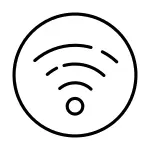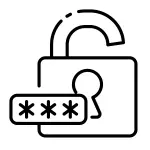Pet owners likely don’t associate mental health problems with their primary veterinarian or the experts who treat their animals’ serious illnesses. And the majority of non-experts would be shocked to learn that, domestically and internationally, veterinarians have a significant suicide risk.
However, in the past decade, veterinary medicine has extensively discussed the realities of burnout, depression, and mental health. Furthermore, the discussion is expanding and getting more urgent across all media, including peer-reviewed publications.

Mental Health Issues in the Veterinary Industry
Veterinary care is absolutely a rewarding job, but it’s not just playing with puppies and kittens all day.
People in the veterinary sector selected this line of work because they are passionate about caring for animals and want to devote their lives to doing so. However, not every patient can be saved. So, a veterinarian’s daily life includes euthanasia to end the pain. Even worse, because of financial constraints, vets may have no choice but to put animals with curable diseases to sleep. Words cannot even begin to express the emotions involved in incidents of animal abuse and neglect, in which they frequently become implicated. In overcrowded shelters, some veterinarians must put many animals to death. All of this can cause anxiety, depression, and compassion fatigue.
The majority of veterinary professionals and employees are overworked and understaffed. Veterinarians and veterinary technicians are in limited supply nationwide. Stress and burnout are caused by a lack of work-life balance and long hours. They frequently even devote their free time to helping sick folks.
Clients’ misguided rage is another element. The cost of veterinary care is high. That is caused by equipment, lab coats, medications, and more. They charge a tiny fraction of what human medicine would cost for the same service, yet treatment is still expensive to offer. Pet owners who are dealing with a seriously ill animal frequently find this to be quite distressing. It can also be an emergency, which is worse. However, those upset over this often lash out against animal rescuers. Threats, yelling, cyberbullying, and occasionally even physical damage are prevalent. Their mental health may suffer significantly if this keeps happening to them.
Resources for a Vet’s Healthier Mind
Being a veterinarian is difficult because of so many outside influences. However, there are also internal reasons that may make working in this field much more challenging. These include despair, anxiety, mood disorders, and other mental health issues.
Thankfully, the industry has recently started to pay more attention to the health of veterinary personnel. Veterinarians can get assistance and support from a variety of sources. We have come across the following apps for your mental health:
VETBytes
VETbytes offers veterinary doctors, nurses, and animal healthcare teams access to a vast library of succinct medical summaries culled from international standards and peer-reviewed journals. The web-based app has been released in association with the BSAVA, and members may access it for less money with special membership rates. Veterinarian students can use it for free.
The initial component of a vastly expanding resource for veterinarians, nurses, and practice teams is the Emergency Medicine app. VETbytes, developed in collaboration with first-opinion veterinarians, nurses, and experts, offers the ideal harmony of knowledge and use.
Vets in Mind
Vets in Mind, a company founded by a fellow veterinarian, provides mobile access to tools, resources, and assistance for mental health issues around the clock. More than 500 sources of information are available in the app.
To make you feel less isolated, Vets in Mind also includes personal accounts from other veterinarians about their experiences with depression, suicidal ideation, anxiety, and rage.
Kite Veterinary
Instead of long webinars, seminars, or multi-day courses, Kite Veterinary understands that busy veterinarians are more likely to employ a mental health program readily delivered via microlearning. With microlearning, you may easily access brief informational snippets that are often only five minutes long. The app library has articles on everything from leadership and healthy conflict resolution to mindfulness and self-care. To proactively provide mental health assistance for your whole staff, you may buy the app, which can be branded and tailored for your practice.
Headspace
The best times to meditate are in the morning when you need to concentrate after a hectic day and in the evening. A meditation software called Headspace helps calm you down and teaches you how to live thoughtfully. Daily, brief guided meditation sessions are offered, along with themed ones to assist you in unwinding in particular conditions (e.g., trouble sleeping, stressful circumstances, and emotional crises). Beginner classes will guide the user through the basics so you can benefit the most from meditation.
Sleep Cycle
The basis of a healthy lifestyle is sound, restful sleep. The first step to having a good night’s sleep is recognizing your difficulties, whether you have issues falling asleep, remaining asleep, or getting up in the morning. Sleep Cycle keeps track of your sleeping habits. Plus, it offers advice on how to get the most out of your slumber.
Additionally, it includes an alarm that gently wakes you up during your lightest sleep period instead of a loud alarm that jolts you out of it.
Raising Concerns in the Veterinary Workplace
Veterinary nurses must become registered with the Royal College of Veterinary Surgeons (RCVS) to practice in the UK. The RCVS also oversees their behaviour by enforcing the RCVS Code of Professional Conduct and looking into complaints. By defending the health and well-being of animals and establishing correct standards of behaviour in veterinary practice, their mission is to work in the public interest.
Clients, co-workers, and other veterinary nurses can voice their issues about a veterinary nurse; however, this advice is intended for veterinary professionals and colleagues who desire to voice their concerns about a veterinarian nurse.
To raise a concern, you can fill out this form and send it to the RCVS.
Conclusion
One of the most significant challenges facing veterinarians is their well-being, which demands a lot of attention. It is everyone in the community’s obligation to make a sincere effort to improve welfare. Organizations, people, practice teams, company owners, veterinary institutions, and individuals all have vital responsibilities to play.

















